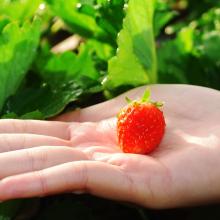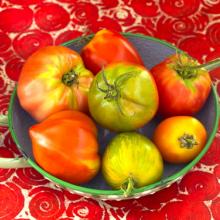nutrition
Do you want to know a secret about working out? Here it is: we don’t grow our muscles in the gym. When we lift weights we perform controlled damage to our bodies; we literally tear our muscle fibers, forcing our bodies to adapt. We improve outside of the gym by consuming healthy foods. To “battle the bulge” requires a commitment to strenuous exercise and healthy eating. All who have enjoyed (or endured) a strenuous workout or have disciplined their dietary practices understand that results are impossible without bodily sacrifice — no pain, no gain.
Furthermore, if it is true that we are what we eat, then Christ-followers ought to take a long, hard look at the kinds of things we are putting into our bodies. Paul’s words to the Christ-followers in Rome offer us some food for thought (pardon the pun; couldn’t help myself).
Paul beseeches us to present our bodies as living sacrifices, that is, to submit our lived reality to the standards that God deems acceptable. Such a way of being in the world is deemed reasonable — spiritual even, as the NRSV translators put it. This is our tangible act of service to God.
Some read Romans 13 and lean toward faith being a personal thing (pay your taxes and don’t break the laws, avoid sexual immorality, debauchery, jealousy, and instead clothe yourself with Christ), but the chapter also says God has established government as his “servant to do good.”
This is why, in a country where the public is encouraged to participate in government, I want to encourage people of faith to voice the heart of God when it comes to issues like feeding the least of these.
Hey, is this good news, or what?
Give up organic heirloom tomatoes at $4.99/pound!
Stop paying $5.99 up for a gallon of organic milk!
Buy cheaper ground beef than the organic grass-fed stuff at $7.99+/pound!
Slow down, folks. Read the articles, not just the attention-grabbing headlines. What the scientists discovered was basically this: Take two identical, ripe, juicy, fresh peaches, one of which was grown organically and one of which was not. Analyze the nutritional profile of each. You will find that one peach has just about the same vitamins as the other.
OK, and I'll bet they're pretty much the same color, too. And they probably weigh the same. And if dropped from a tall building, they most likely will go splat at about the same time.
 There is a dangerous marketing strategy when it comes to food and our children. No, it’s not “sugar” or “fat” or even promotions of “low sugar” or “low fat."
There is a dangerous marketing strategy when it comes to food and our children. No, it’s not “sugar” or “fat” or even promotions of “low sugar” or “low fat."
Most of the food-marketing ploys aimed at kids are contributing to the soaring rate of obesity.
Here’s why, and here’s why it is so personal to me.
I’ve told my story many times of how I struggled with being overweight as a child and teen. The problem wasn’t “baby fa," it was the freedom I had to eat O’Henry bars and ice cream on a daily basis at my grandparents' house. How fun!! Weekly visits to Bullwinkles (does anyone else remember that place?) and McDonald’s made eating exciting!
Back in the 1970’s and '80’s, marketing food to children as entertainment was only making its debut. Now, it’s a multi-billion dollar industry that’s derailing healthy lifestyle patterns for our kids right before our eyes. And we’re OK with that?


